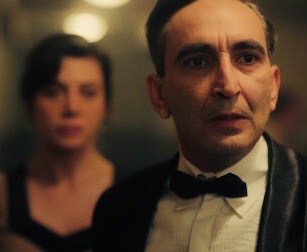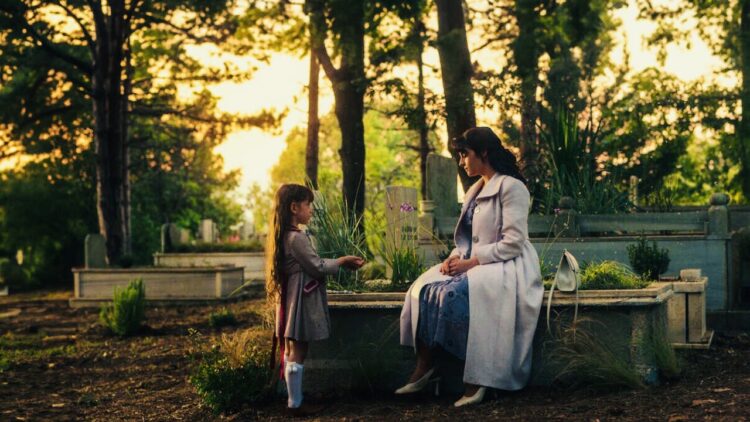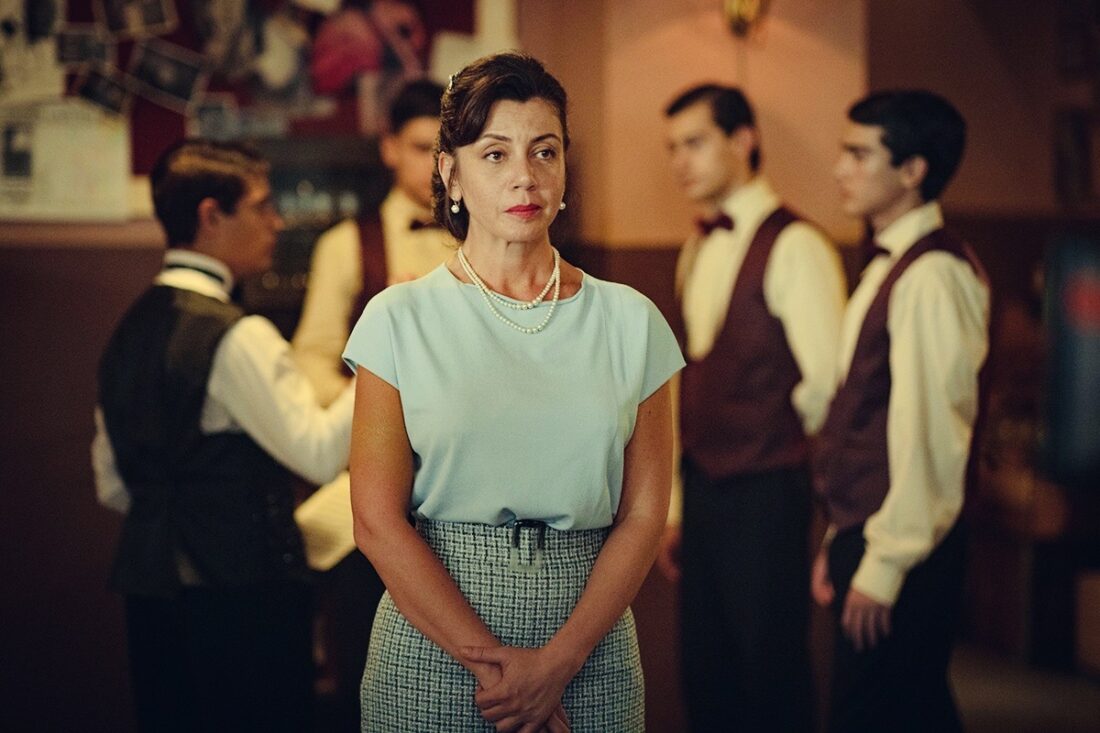The second season of Zeynap Gunay’s melodrama, The Club, which is now available on Netflix, tends to be melancholic. But in the tenth and final episode, the gloom dissipates and the light shines in.
The main characters in this Turkish production, set in Istanbul in the late 1950s and 1960, are: Matilda (Gokce Bahadir), an intense Sephardi Jewish widow whose family was financially ruined when the Turkish government imposed a punitive tax on religious minorities during World War II; Rasel (Asude Kalabek), her rebellious daughter with whom she clashes; Ismet (Baris Ardic), Rasel’s unreliable and temperamental Muslim boyfriend, and Celebi (Firat Tanis), the moody proprietor of a nightclub which employs Matilda.
Several new faces are introduced — Rana (Ada Erma), Rasel’s irrepressible five-year-old daughter who’s wise beyond her years; Fikret (Halil Babur), the abusive ne’er-do-well son of Kursat, a reclusive scoundrel who was complicit in the downfall of Matilda’s father, and Keriman (Serra Ariturk), the lead singer in Celebi’s Club Istanbul.
The Club, a soap opera distinguished by a strong cast, unfolds mostly in Turkish, but Ladino, Hebrew and Greek can occasionally be heard.

At the center of it all is the club, which teeters on the cusp of closure after Celebi is fined with a hefty tax. Fikret, a loanshark, offers to bail him out if he agrees to make him a partner. Celebi dislikes Fikret with a passion, as do his workers, and is reluctant to accept his proposition. In desperation, he accepts Fikret’s offer, much to the disdain and anger of his employees, who stage a walkout that leaves him short of employees. Later, he regrets his partnership with Fikret.
Ismet, having left Rasel in the lurch during her pregnancy, suddenly reappears. Since Rana’s religious identity is unclear, she needs to be registered either as a Jew or a Muslim. It would appear that Ismet wants Rana to be raised as a Muslim.

Midway through the series, the Jewish dimension surfaces in a few select scenes. Shabbat candles are lit and a Hebrew prayer is chanted. A Jewish wedding takes place amid shouts of “mazel tov.” A mournful Ladino song is sung at a funeral. A rabbi recites kaddish at a cemetery. A worker in the club tells Matilda, “I have a Jewish friend myself, and I get along with them.” And toward the denouement, a man who reconnects with Matilda after a long absence issues the following greeting, “Shabbat Shalom, Miss Matilda.”
Amid these developments, Matilda and Rasel quarrel yet again, and Matilda moves in with Celebi, her former nemesis. Meanwhile, Rasel is arrested for shoplifting.
After the sudden death of the club’s “headliner,” or lead performer, Matilda and Fikret disagree about his successor. Matilda leans toward Keriman, a blonde, unTurkish-looking performer.
The last episode is infused with high drama. Rasel exerts pressure on Ismet to decide whether he wants her as his wife and whether they can live together as a normal family. The Turkish military stages a coup, ushering in a new era of authoritarianism. Kursat threatens to close the club. Fikret temporarily emerges as its savior and as his father’s adversary.
The Club, in terms of its story line and craftsmanship, is plausible and professional, though its heavy atmosphere can be taxing. It stands as a rare and uplifting example of a mainstream Muslim television series that is open to the Jewish community and that features sympathetic Jewish characters.
